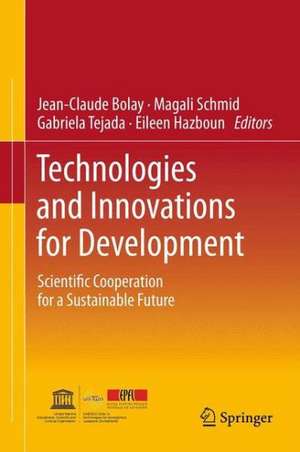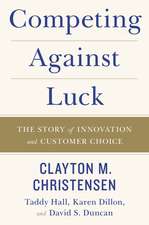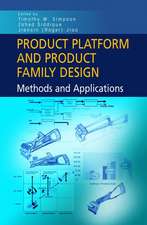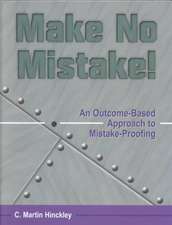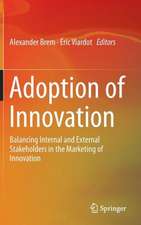Technologies and Innovations for Development: Scientific Cooperation for a Sustainable Future
Editat de Jean-Claude Bolay, Alexandre Schmid, Gabriela Tejada, Eileen Hazbounen Limba Engleză Paperback – 13 apr 2014
The first International Scientific Conference on the topic organized by the UNESCO Chair Technologies for Development at the Ecole Polytechnique Fédérale de Lausanne in 2010 focused on its four priority sectors: Technologies for Sustainable Development of Habitat and Cities, ICTs for the Environment, Science and Technology for Disaster Risk Reduction, and Technologies for the Production of Sustainable Energy.
This volume reflects the main outcomes of the conference and provides some significant orientation and success criteria for the effective implementation and use of innovative technologies, their aims, their particular applications in the context of developing countries, their accessibility for users, and their appropriation by producers and stakeholders in the field of development both in the North and South, thus ensuring their sustainability. This kind of scientific cooperation also highlights the added values for northern researchers in sharing their knowledge and know-how, leading to a real win-win partnership.
The authors gathered within this book include representatives from academic and research institutions and other organizations from diverse countries and offer a significant synergy of competences, approaches and disciplines.
| Toate formatele și edițiile | Preț | Express |
|---|---|---|
| Paperback (1) | 893.71 lei 6-8 săpt. | |
| Springer – 13 apr 2014 | 893.71 lei 6-8 săpt. | |
| Hardback (1) | 644.95 lei 6-8 săpt. | |
| Springer – 17 feb 2012 | 644.95 lei 6-8 săpt. |
Preț: 893.71 lei
Preț vechi: 1089.89 lei
-18% Nou
Puncte Express: 1341
Preț estimativ în valută:
171.01€ • 179.03$ • 141.50£
171.01€ • 179.03$ • 141.50£
Carte tipărită la comandă
Livrare economică 05-19 aprilie
Preluare comenzi: 021 569.72.76
Specificații
ISBN-13: 9782817805160
ISBN-10: 281780516X
Pagini: 364
Ilustrații: XXX, 334 p.
Dimensiuni: 155 x 235 x 19 mm
Greutate: 0.52 kg
Ediția:2012
Editura: Springer
Colecția Springer
Locul publicării:Paris, France
ISBN-10: 281780516X
Pagini: 364
Ilustrații: XXX, 334 p.
Dimensiuni: 155 x 235 x 19 mm
Greutate: 0.52 kg
Ediția:2012
Editura: Springer
Colecția Springer
Locul publicării:Paris, France
Public țintă
Professional/practitionerCuprins
1.Introduction.- 2.Risk Assessment.- 3.Hierarchical Model in Decision-Making.- 4.An Integrated Fuzzy Approach for Aggregative Supplier Risk Assessment.- 5.Fuzzy-AHP Approach for Analysing Risk Rating of Environmentally Friendly Product Designs.- 6.Fuzzy Extent Analysis for Food Risk Assessment.- 7.A Hierarchical Fuzzy TOPSIS Approach for the Risk Assessment of Green Supply Chain Implementation.- 8.Fuzzy-ANP Approach for Environmental Risk Assessment of Product Designs.- 9.Conclusions and Future Research Directions.- Appendix A.Introduction to Life-Cycle Assessment (LCA)- Appendix B. Pairwise Comparisons of the Example in Chapter 3.
Notă biografică
Jean-Claude Bolay, [Prof], is the Director of the Cooperation and Development Centre (CoDev) at Ecole Polytechnique Fédérale de Lausanne (EPFL). As the scientific director of the centre he guides a team of 18 scientists and collaborators with the goal of promoting and coordinating scientific cooperation activities within EPFL. Among many relevant training, research and management activities, the centre manages the UNESCO Chair in Technologies for Development, which focuses on the adaptation of technologies and innovation within the context of emerging and developing countries.
Magali Schmid, Scientific Collaborator and Project Leader at CoDev, EPFL, is responsible for the Disaster Risk Reduction program, one of the four priority areas the UNESCO Chair in Technologies for Development. She is also Project Leader for the Certificate in Advanced Studies in Disaster Risk Reduction.
Gabriela Tejada, [PhD], Scientific Collaborator at CoDev, EPFL, is Project Leader of ongoing research on scientific diasporas. Along with encouraging and coordinating collaboration with selected international organizations she is also responsible for the International Scientific Advisory Board (ISAB), which reviews and guides scientific cooperation activities with emerging and developing countries at EPFL.
Eileen Hazboun, is the Administrator of the UNESCO Chair in Technologies for Development and the Certificate of Advanced Studies in Management of Development Projects (MaDePro), CoDev, EPFL.
Magali Schmid, Scientific Collaborator and Project Leader at CoDev, EPFL, is responsible for the Disaster Risk Reduction program, one of the four priority areas the UNESCO Chair in Technologies for Development. She is also Project Leader for the Certificate in Advanced Studies in Disaster Risk Reduction.
Gabriela Tejada, [PhD], Scientific Collaborator at CoDev, EPFL, is Project Leader of ongoing research on scientific diasporas. Along with encouraging and coordinating collaboration with selected international organizations she is also responsible for the International Scientific Advisory Board (ISAB), which reviews and guides scientific cooperation activities with emerging and developing countries at EPFL.
Eileen Hazboun, is the Administrator of the UNESCO Chair in Technologies for Development and the Certificate of Advanced Studies in Management of Development Projects (MaDePro), CoDev, EPFL.
Textul de pe ultima copertă
Technological innovation – combined with scientific research – has always constituted a driving force of transformation in our societies. At the same time, it is no longer simply possible to transfer technologies from the North to the South; it is also essential to consider technical innovations that are adapted to the social, environmental, cultural and economic conditions of receiving countries, and which can be appropriated by their potential users and as such prove to be real technologies for fostering development.
The first International Scientific Conference on the topic organized by the UNESCO Chair Technologies for Development at the Ecole Polytechnique Fédérale de Lausanne in 2010 focused on its four priority sectors: Technologies for Sustainable Development of Habitat and Cities, ICTs for the Environment, Science and Technology for Disaster Risk Reduction, and Technologies for the Production of Sustainable Energy.
This volume reflects the main outcomes of the conference and provides some significant orientation and success criteria for the effective implementation and use of innovative technologies, their aims, their particular applications in the context of developing countries, their accessibility for users, and their appropriation by producers and stakeholders in the field of development both in the North and South, thus ensuring their sustainability. This kind of scientific cooperation also highlights the added values for northern researchers in sharing their knowledge and know-how, leading to a real win-win partnership.
The authors gathered within this book include representatives from academic and research institutions and other organizations from diverse countries and offer a significant synergy of competences, approaches and disciplines.
The first International Scientific Conference on the topic organized by the UNESCO Chair Technologies for Development at the Ecole Polytechnique Fédérale de Lausanne in 2010 focused on its four priority sectors: Technologies for Sustainable Development of Habitat and Cities, ICTs for the Environment, Science and Technology for Disaster Risk Reduction, and Technologies for the Production of Sustainable Energy.
This volume reflects the main outcomes of the conference and provides some significant orientation and success criteria for the effective implementation and use of innovative technologies, their aims, their particular applications in the context of developing countries, their accessibility for users, and their appropriation by producers and stakeholders in the field of development both in the North and South, thus ensuring their sustainability. This kind of scientific cooperation also highlights the added values for northern researchers in sharing their knowledge and know-how, leading to a real win-win partnership.
The authors gathered within this book include representatives from academic and research institutions and other organizations from diverse countries and offer a significant synergy of competences, approaches and disciplines.
Caracteristici
This book presents the selected papers from the EPFL UNESCO Chair International Scientific Conference on Technologies for Development held from 8 to 10 February 2010 It covers the themes of urban sustainability, ICTs for the environment, disaster risk reduction, sustainable energy production It shows how innovative appropriate technologies can benefit emerging and developing countries It promotes a real exchange and scientific cooperation between North/South Includes supplementary material: sn.pub/extras
